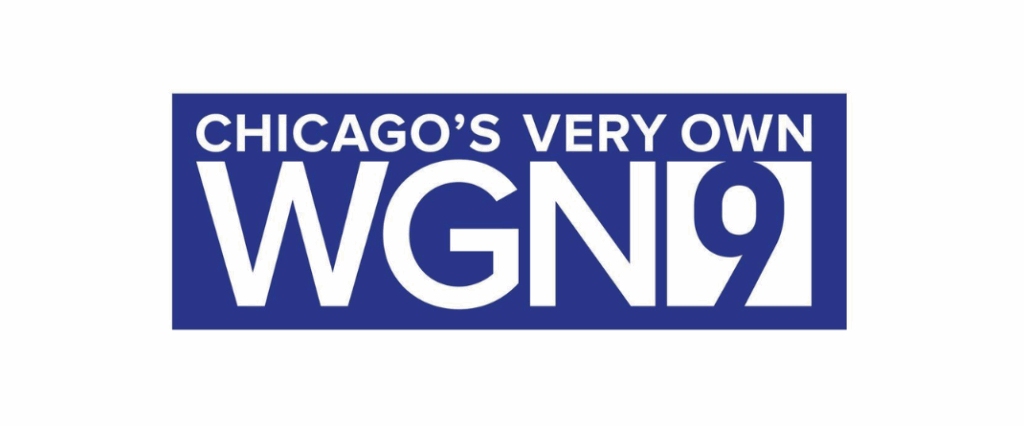Oct 2024
Choose to Change® (C2C®) Program Guide
Topics
Projects
This program guide is intended for community-based organizations working to fill gaps in services and reach an underserved population of youth impacted by violence and trauma.
The guide outlines Choose to Change®’s overarching principles, purpose, and philosophy as well as specifications for delivering programming informed by C2C®. In the sections that follow, you will find a comprehensive overview of the C2C® program’s origin, its various components, and reference resources, including procedures and guidelines to enhance fidelity in the implementation of the C2C® program’s wraparound and trauma-informed services.
- Section 1 explores the history and development of Choose to Change®, including background on the program collaborators, Brightpoint (formerly Children’s Home & Aid) and Youth Advocate Programs, Inc. (YAP)™, the call to action that brought the two organizations together, a brief description of the C2C® program, and evidence of the program’s success identified in an evaluation conducted by the University of Chicago Crime Lab and Education Lab in their role as research partners.
- Section 2 provides a comprehensive overview of C2C®, including the model, timeline of services, key personnel, and school and partner relationships.
- In Section 3, the key components of the program model are described in their entirety alongside examples isolated from the program evaluation as well as the significance of each element.
- Sections 4 – 6 chronicle the delivery of C2C® services from start to finish. These sections cover the recruitment process, engagement, and discharge at the end of services, including the core components of intensive wraparound support, advocacy, and trauma-informed therapy.
- Section 7 presents a summary of administrative counting expectations for supervision, documentation, and communications.
- Lastly, Section 8 concludes with a recounting of virtual service delivery, incorporating the requirements for delivering both remote wraparound mentorship and group telehealth services.
Topics
Projects
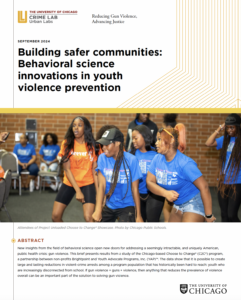
Building safer communities: Behavioral science innovations in youth violence prevention
This policy brief highlights results from a large-scale randomized controlled trial that evaluated the impact of Choose to Change® (C2C®) on participants’ criminal justice involvement.

Unpacking the Impacts of a Youth Behavioral Health Intervention: Experimental Evidence from Chicago
This working paper details results from a study of Choose to Change® (C2C®), a trauma-informed cognitive behavioral therapy and intensive mentoring program developed by nonprofits Brightpoint and Youth Advocate Programs, Inc. (YAP).
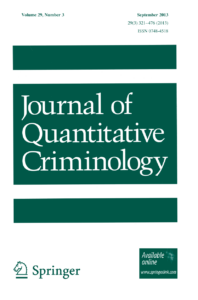
Improving Programming in Juvenile Detention: The Impact of Project Safe Neighborhoods Youth Outreach Forums
This paper presents the results of a randomized controlled trial of a youth outreach forums program run in the Cook County Juvenile Detention Center (JTDC) by the Northern Illinois Project Safe Neighborhoods Task Force.
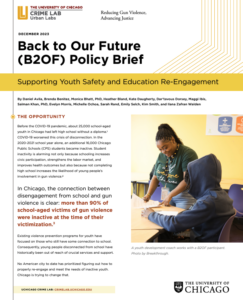
B2OF Policy Brief: Supporting Youth Safety and Education Re-Engagement
This policy brief outlines the first year of implementation of Back to Our Future (B2OF), a state-funded, district-led, evidence-informed effort to re-engage disconnected students at an elevated risk for gun violence involvement.
Latest Updates
Kelly Leonard: How improv can help police do their job
Kelly Leonard joins WGN’s John Williams to discuss The Second City’s partnership with the Crime Lab’s Policing Leadership Academy that’s using improv to help officers improve their communication skills.

Novel approaches can chip away at gun violence, and make a big difference
In an op-ed for the Chicago Sun-Times, Crime Lab Pritzker Director Jens Ludwig argues that when it comes to gun violence, we’ve been focused on the wrong solutions – a key insight from his new book, “Unforgiving Places: The Unexpected Origins of American Gun Violence.”
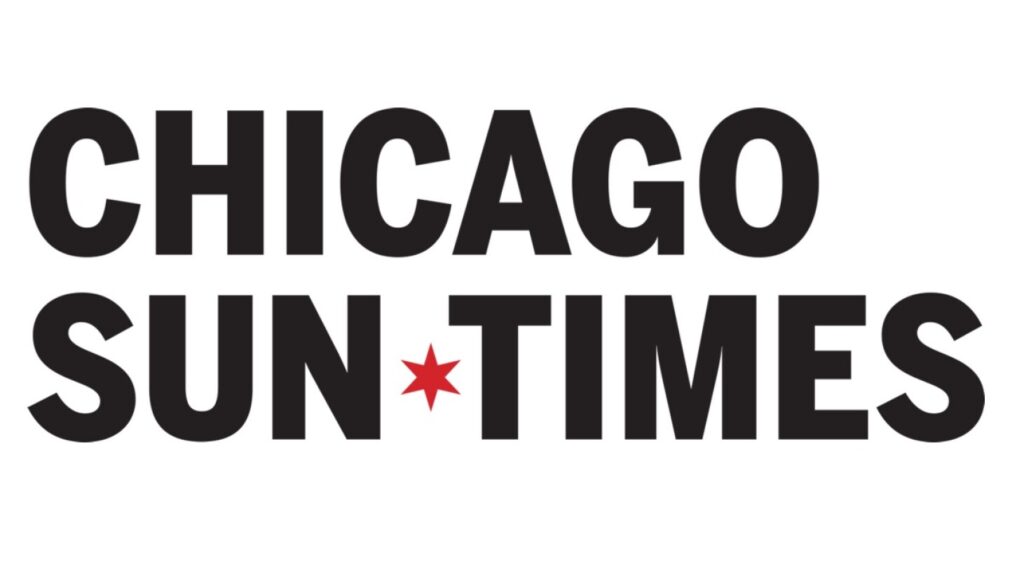
New book challenges conventional wisdom on Chicago shootings
Crime Lab Pritzker Director Jens Ludwig joins WGN’s Mike Lowe for an interview to discuss his new book “Unforgiving Places: The Unexpected Origins of American Gun Violence,” and how the book challenges our conventional wisdom about why shootings occur and how we can make progress on gun violence.
